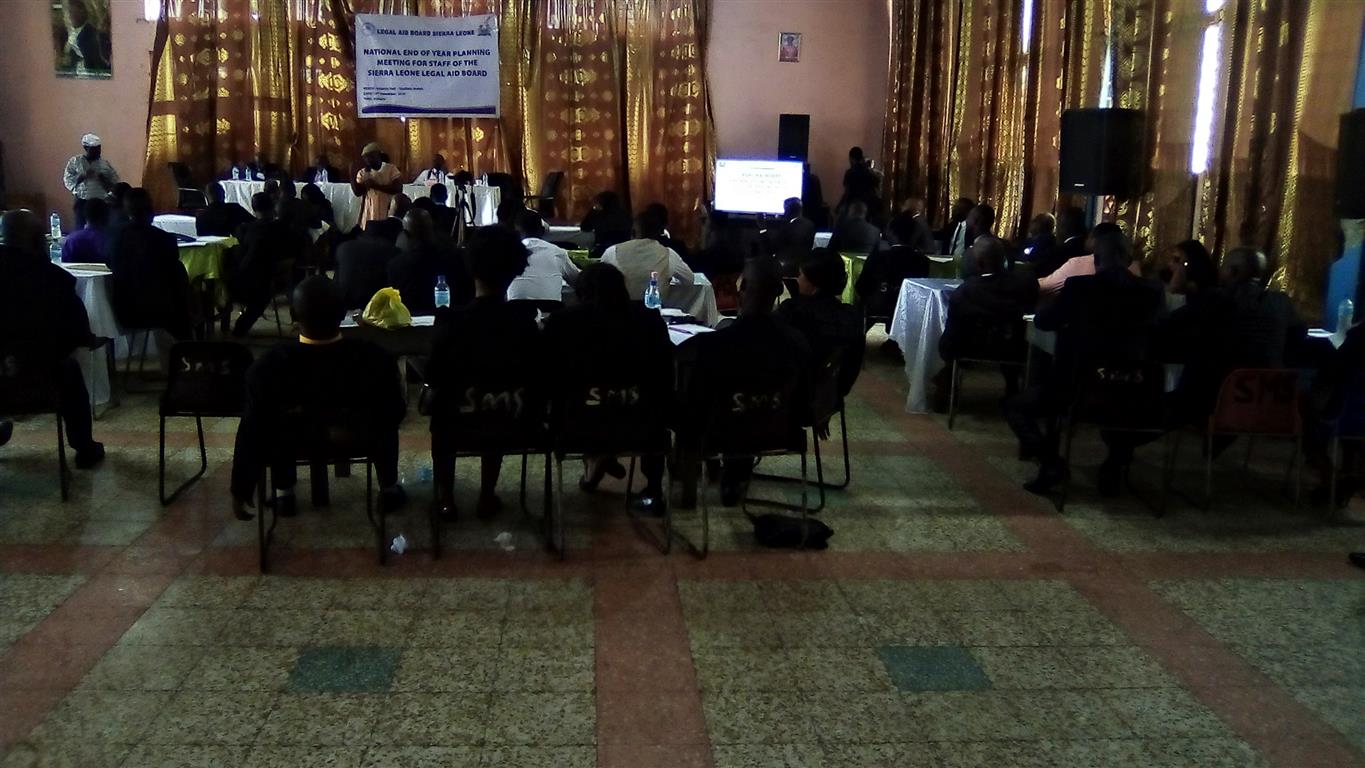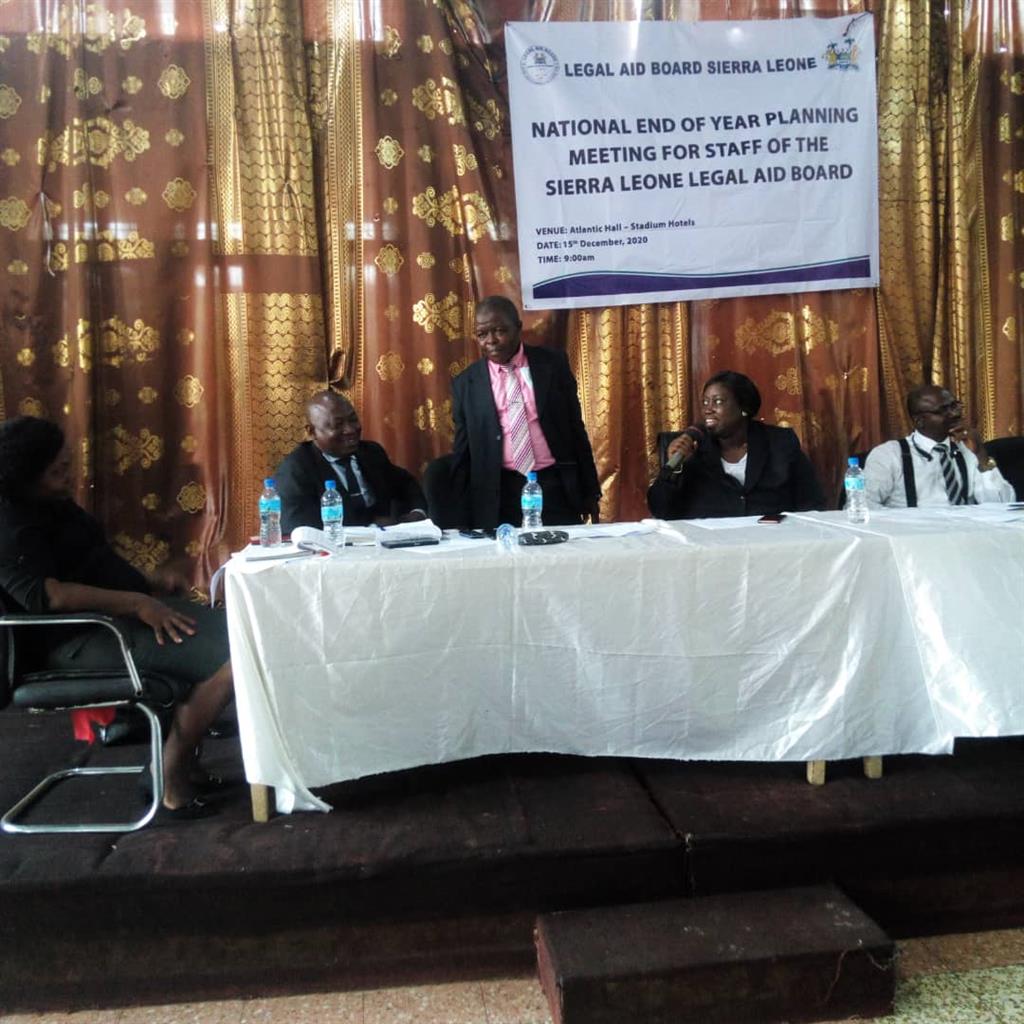15 December 2020 – The Executive Director of the Legal Aid Board, Ms. Fatmata Claire Carlton-Hanciles has urged staff to prepare for a steady increase in their workload come 2021 even with limited resources at their disposal. She made this remark while opening the National Planning Seminar of the Board at the Atlantic Hall at the Stadium Hostels in Freetown on Tuesday, 15 December 2020. The seminar brought together 102 staff from around the country.
The seminar discussed the implementation of the new Strategic Plan for 2021 – 2025 in terms of strengthening service delivery, legal aid to vulnerable groups, legal education and empowerment and accreditation and coordination of legal aid provision.
The Board discussed its achievements in 2020. These include the opening of offices in seven towns and cities including Kamakwie in Karene and Mongor Bendugu in Fabala Districts bringing to 23 the total number of offices in the country.
Also, the Board represented all the accused persons in the Special Criminal Sessions held in Port Loko, Kabala, Magburaka, Moyamba, Pujehun, Mattru Jong, Kono and Kailahun. The Board therefore continues to consolidate its position as the Legal Aid Provider in charge of the criminal calendar.
It was observed that the opening of offices at chiefdom level as a result of increased support from the Government and the MOTT Foundation brought about a steady increase in confidence in the Legal Aid Board. This is evidenced in the increasing number of cases (both civil and minor criminal matters) referred to the Legal Aid Board by the Courts, Police, Traditional Courts and partner organizations.
The Board further discussed the strengthening of the Alternative Dispute Resolution (ADR) mediation particularly upcountry to cope with the number of matters brought before them and legal issues that should guide settlements.
The seminar also discussed challenges such as staffing particularly Lawyers, conditions of service, data collection, vehicles to represent clients brought before the courts in various parts of the country, training for Paralegals and pressure for legal aid services mostly from people with justice needs and challenges from chiefdoms where the Board does not have an office.

The challenges are many and resources will never be enough but they should not stand in the way of providing legal aid to the people.’ Ms. Charlton-Hanciles said, ‘We are working with the Government to improve your condition of service and we are hopeful this will be addressed through the Wages Commission,’ she said.
The discussion also looked at issues with the potential to destroy the image of the Board and its zero-tolerance to corruption. It was emphasized that the staff should explain very clearly to clients that the Legal Aid Board is not responsible to pay for their civil summons, medical reports and fare to return home upon their release by the courts. Also, the Board does not have powers of arrest and enforcement of settlements reached after mediation.

